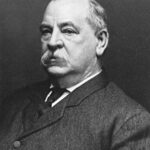Cleveland’s Constitutional Stand
Grover Cleveland transformed presidential veto power during his first term from 1885-1889. He vetoed 414 bills, more than all previous presidents combined. This unprecedented use of executive authority targeted fraudulent pension claims and wasteful congressional spending. 📊 Cleveland’s vetoes represented 70% of all presidential vetoes in American history up to that point.
Targeting Fraudulent Claims
Private pension bills dominated Cleveland’s veto targets. Congress routinely passed individual pension claims without proper investigation. Many applicants fabricated military service records or exaggerated disabilities. Cleveland personally reviewed each case, rejecting clearly fraudulent claims. ⚠️ His detailed veto messages exposed widespread corruption in the pension system.
Fiscal Responsibility Champion
Cleveland’s vetoes saved taxpayers millions of dollars annually. The federal budget faced mounting pressure from Civil War pension costs. His actions demonstrated that presidential veto power could serve as an effective fiscal check. 💰 Treasury records show pension expenditures stabilized during his administration, preventing further budget expansion.
Impact:
Strengthening Executive Authority
Cleveland’s bold use of presidential veto power permanently altered the constitutional balance. Future presidents gained legitimacy for aggressive veto strategies. His detailed veto messages established precedents for executive oversight of legislative excess. 🔥 Congressional Republicans initially condemned his actions but later adopted similar approaches when in the executive branch.
Long-term Constitutional Effects
Historians consistently rank Cleveland’s veto strategy among the most successful presidential decisions. His actions proved that executive power could effectively counter legislative corruption. The Supreme Court later cited Cleveland’s precedents in separation of powers cases. 📈 Modern presidents routinely invoke his example when defending controversial vetoes.
Political and Social Consequences
Cleveland’s vetoes sparked national debate about government spending and veteran benefits. Legitimate veterans initially faced increased scrutiny, but the system became more transparent. His actions reduced public cynicism about government corruption. 🌍 International observers praised American constitutional checks and balances, enhancing the nation’s democratic reputation globally. The precedent influenced executive-legislative relations for generations.
